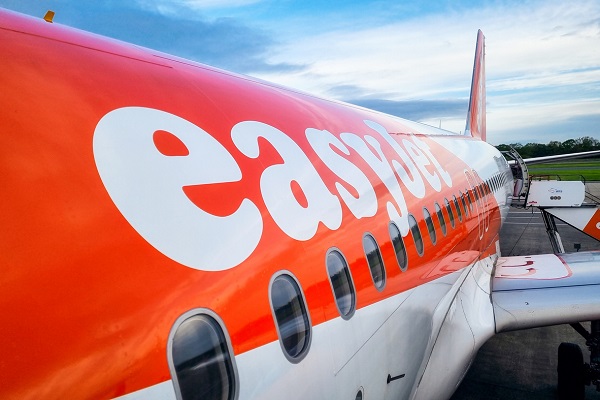Clouds begin to clear at easyJet
18th April 2023 08:33
by Richard Hunter from interactive investor
Shares are up 60% in 2023 so far and this latest update reflects growing optimism at the budget airline. Our head of markets examines the numbers and new forecasts.

easyJet (LSE:EZJ) has continued its flight back towards financial safety after a strong Easter showing and the promise of a busy summer period to come.
In this trading update for the six months ended 31 March, the airline said it now expects revenues for the half-year to rise to £2.69 billion from a previous £1.5 billion, and for the pre-tax loss number to reduce from £545 million to between £405 million and £425 million. For the full year, easyJet anticipates exceeding market expectations for a profit of £260 million given the high demand and strong bookings which it is already seeing.
- Invest with ii: Open a SIPP | Best SIPP Investments | SIPP Withdrawal Rules
Indeed, Easter capacity in the UK returned to pre-pandemic levels, and is expected to remain there in peak summer, following an increase in capacity of 40% between January and March. For the second quarter, the group saw passengers increase by 35% year-on-year, with revenue per seat spiking by 43% and with a load factor of 88%, compared to a previous 78%.
Each of the two more recent additions to income are showing much promise for the future. Ancillary revenues, which include the likes of customer payments for personally allocated seats, baggage and food, rose by 67% and now account for 28% of overall sales.
In addition, expected growth at easyJet Holidays has now been increased to 60% from 50%, the latter of which was an upward revision from 30%. While revenues are just 6.5% of the overall group total, an increase of 218% in the period and a summer season which is already 80% sold is clearly playing into the minds and wallets of cost-conscious consumers.
Further progress has been made in the reduction of net debt, which has reduced from £1.1 billion at the end of 2022 to a current £0.2 billion. Behind the scenes, a continuing focus on costs, the optimisation of its network and the increase in and of ancillary products have all played a part in improving the financial picture. It is perhaps far too early for the group to be considering the payment of a dividend, but there remains work to do before such a move could be justified.
Indeed, fuel costs, general inflation and a previously unhelpful strong US dollar all contributed to cost headwinds which are not only outside the company’s control but which have also stalled the immediate return to profitability. The sterling cost per seat rose by 71% in the period given those factors, with the pressure starkly marked by comparing revenue and cost per seat overall. Revenue grew by 40% to £66.46 and while the cost only increased by 19%, the number of £77.59 paints the picture of a yawning gap which needs to be closed.
- The outlook for the travel sector and easyJet shares
- ii view: easyJet on course to make annual profit
- Key dates for earnings season Q1 2023
Even so, the company remains upbeat both on current and summer trading, with a return to profitability being a strong likelihood based on the present estimates. More broadly, the challenges of a stalling UK economy could transfer to customer propensity to spend. But while easyJet is not at the extreme discount end of the market, it remains appealing to the main market and easyJet Holidays is showing signs of adding another dimension.
As with the group itself, the share price is showing signs of recovery but still has some way to go. Despite a hike of 57% over the last six months, the shares are still down by 11% over the last year, as compared to a decline of 8% for the wider FTSE250.
Leading in to the pandemic, the shares traded at almost £13 and have declined by 60% from those levels. Even so, some of the clouds are beginning to clear and the recently upgraded market consensus of the shares to a 'cautious buy' reflects a growing optimism.
These articles are provided for information purposes only. Occasionally, an opinion about whether to buy or sell a specific investment may be provided by third parties. The content is not intended to be a personal recommendation to buy or sell any financial instrument or product, or to adopt any investment strategy as it is not provided based on an assessment of your investing knowledge and experience, your financial situation or your investment objectives. The value of your investments, and the income derived from them, may go down as well as up. You may not get back all the money that you invest. The investments referred to in this article may not be suitable for all investors, and if in doubt, an investor should seek advice from a qualified investment adviser.
Full performance can be found on the company or index summary page on the interactive investor website. Simply click on the company's or index name highlighted in the article.